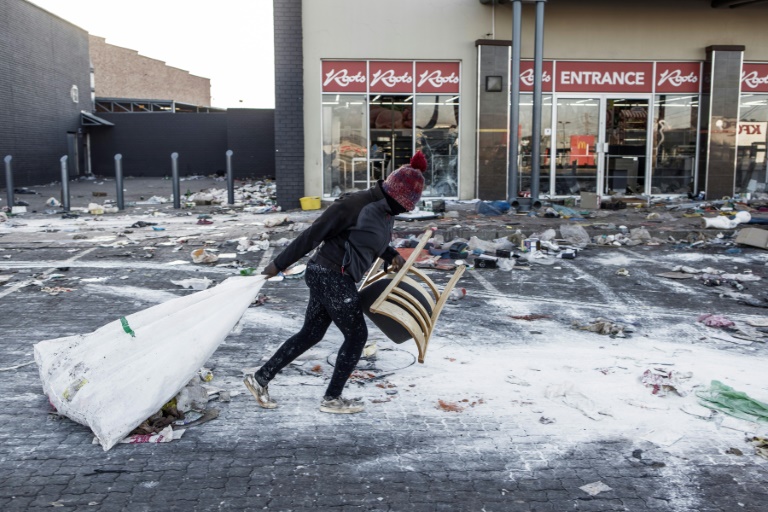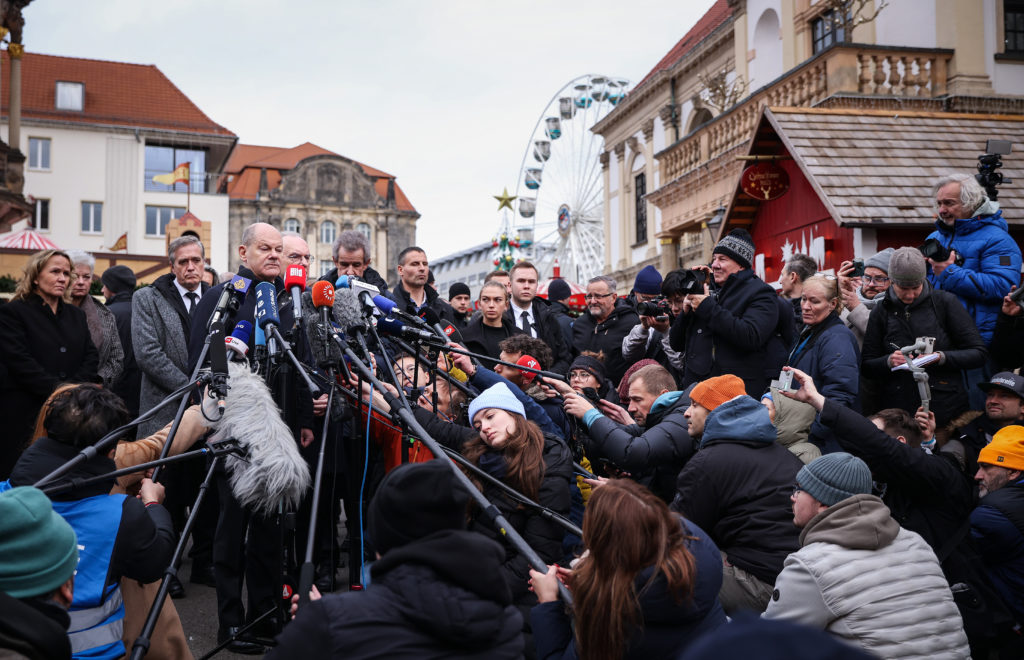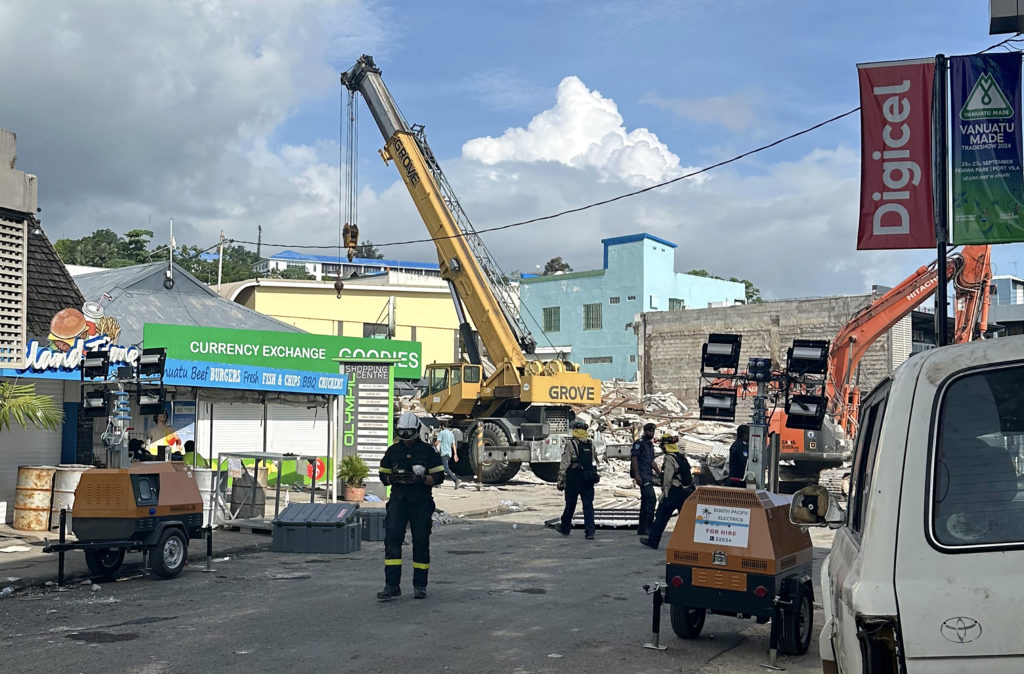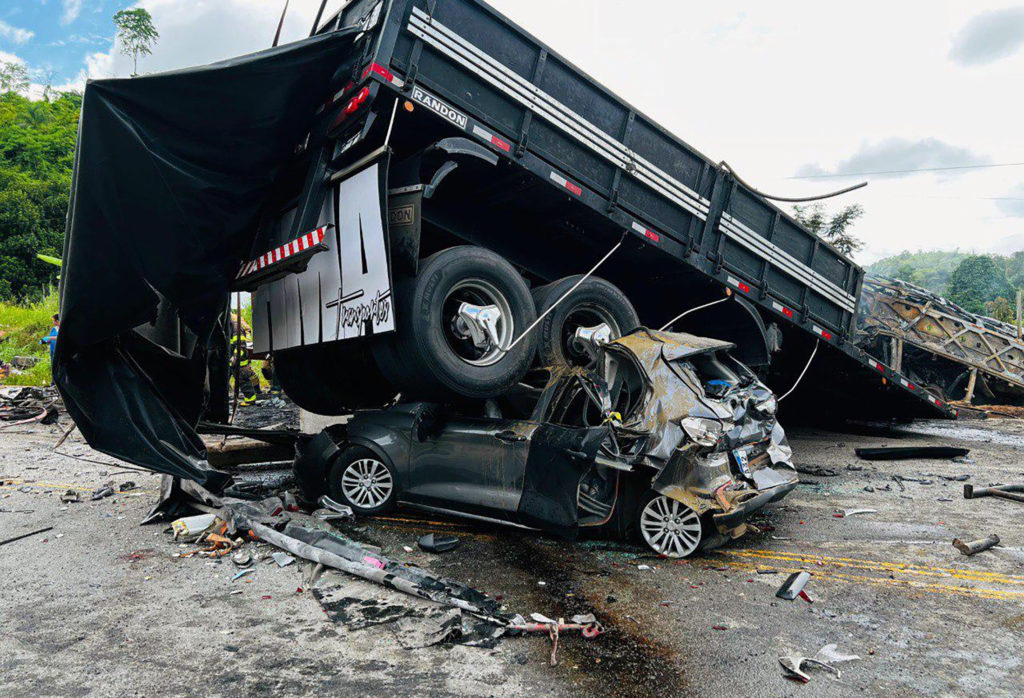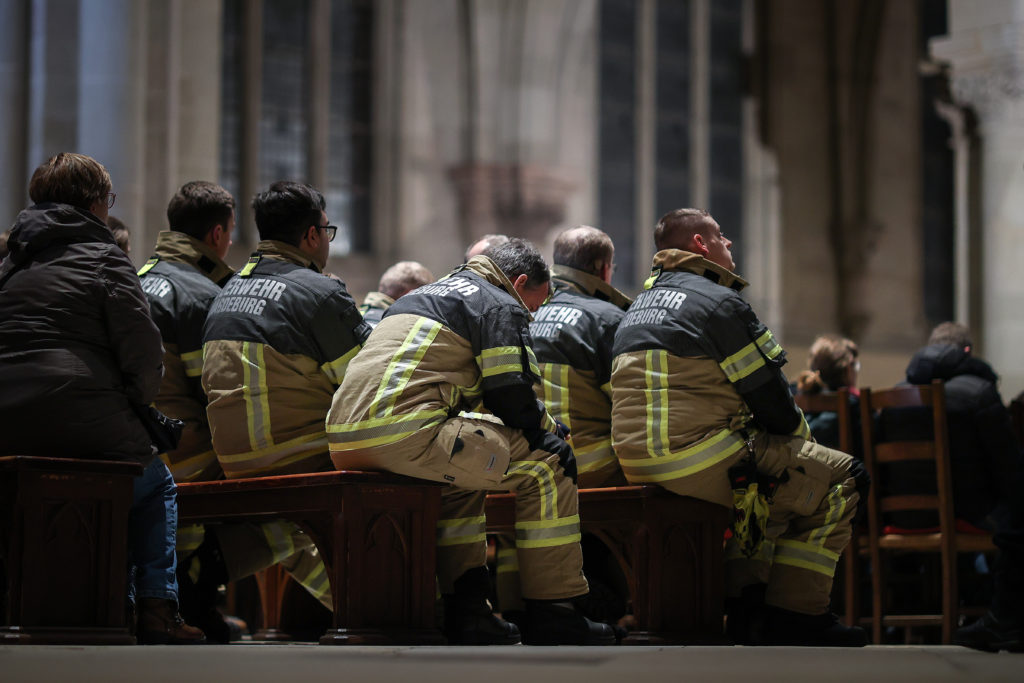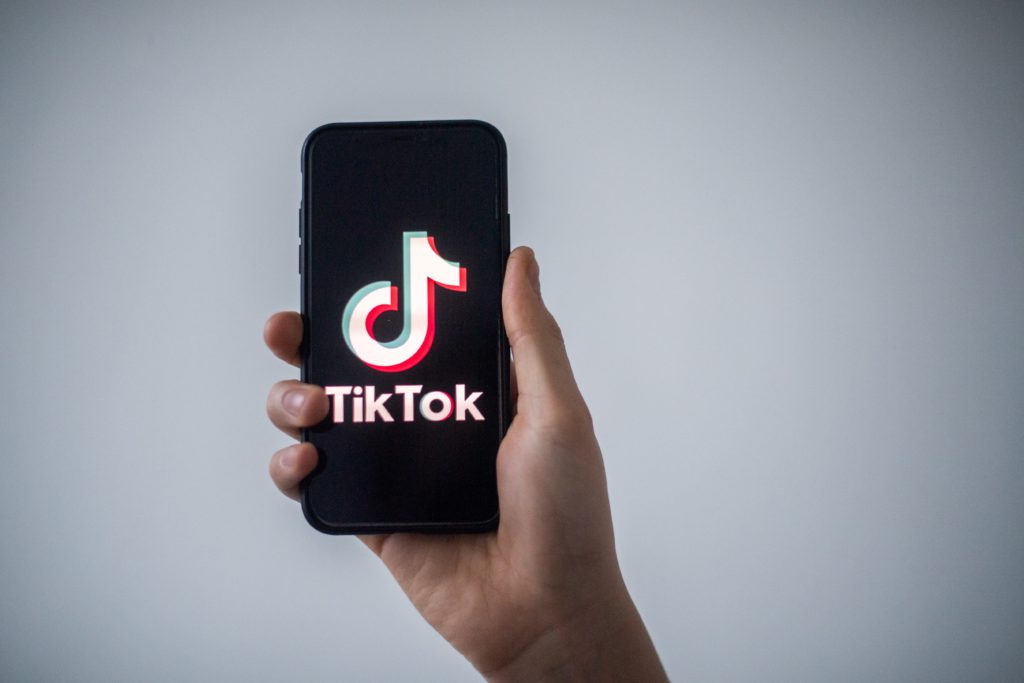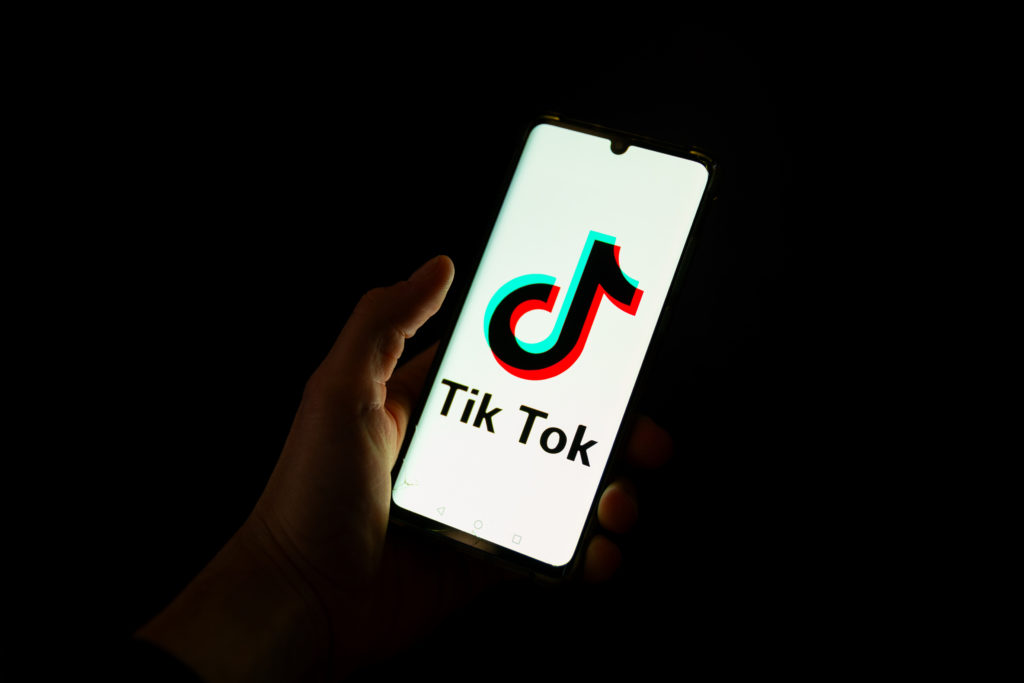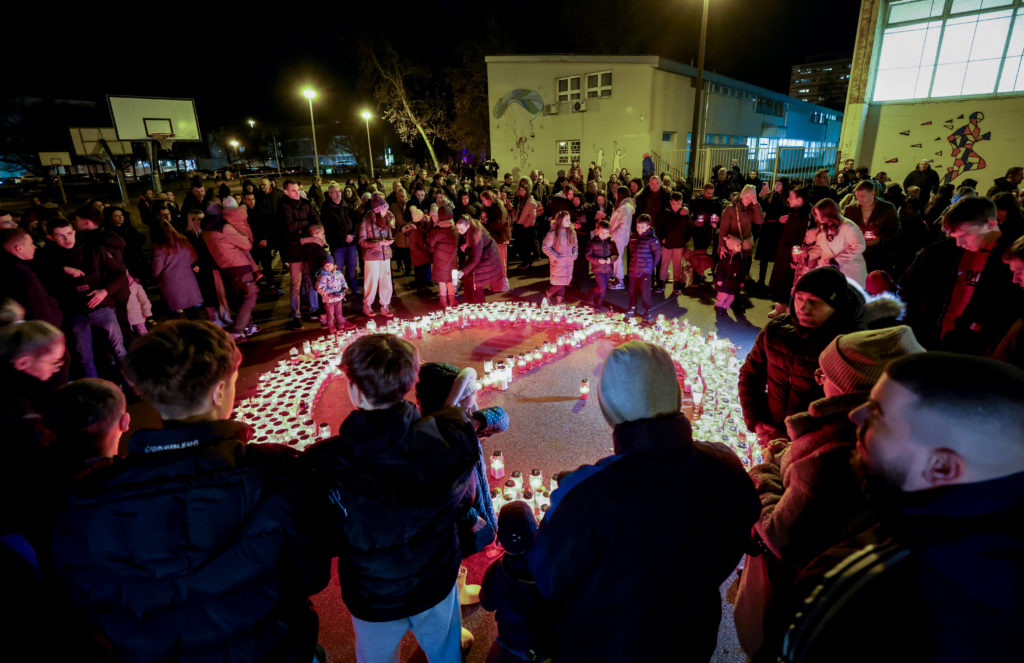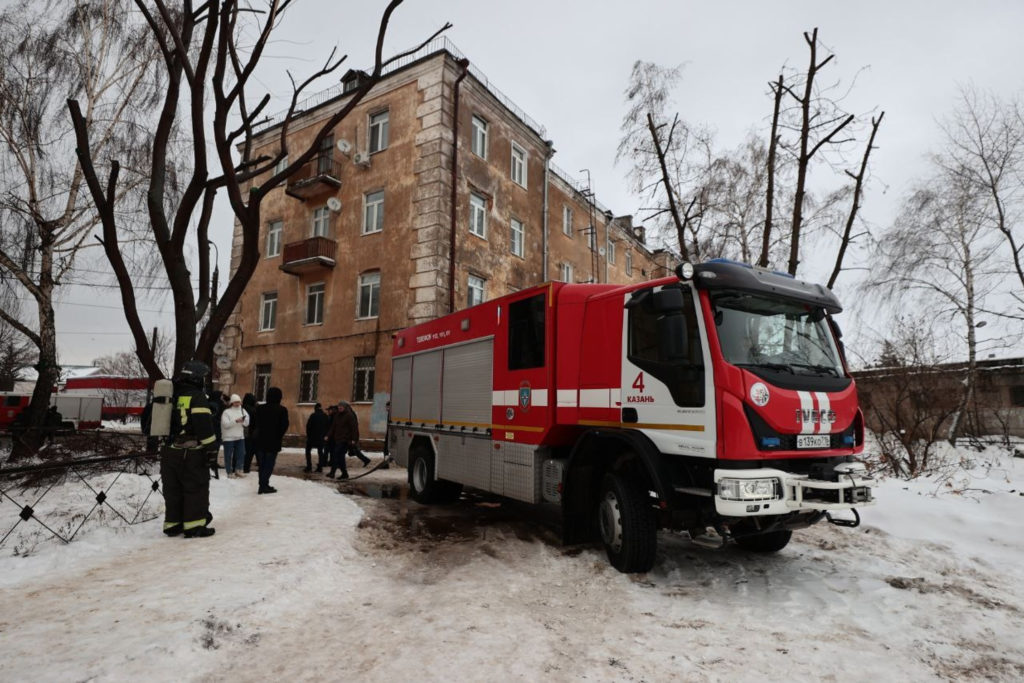Unrest raged in South Africa on Wednesday for the sixth day running, stoking fears of food and fuel shortages as disruption to farming, manufacturing and oil refining began to bite.
Seventy-two people have died and more than 1,200 people have been arrested, according to official figures, since former president Jacob Zuma began a 15-month jail term, sparking protests that swiftly turned violent.
Looting has hit supply chains and transport links especially in the southeastern province of KwaZulu-Natal, sending a shockwave to goods and services around parts of the country.
The government said 208 incidents of looting and vandalism were recorded Wednesday, as the number of troops deployed doubled to 5,000.
The country’s consumer goods regulatory body said more than 800 retail shops had been looted.
President Cyril Ramaphosa met leaders of political parties and cautioned that parts of the country “may soon be running short of basic provisions following the extensive disruption of food, fuel and medicine supply chains.”
State-owned logistics operator Transnet declared a “force majeure” on Wednesday — an emergency beyond its control — on a key rail line that links Johannesburg to the coast because of the unrest.
In the port city of Durban, hundreds of people queued outside food stores hours before they opened, as lines of cars also formed outside fuel stations, an AFP photographer saw.
The night before, the country’s largest refinery SAPREF shuttered its plant in Durban, responsible for a third of South Africa’s fuel supply.
Some fuel retailers have begun rationing while others are starting to run dry.
“It’s inevitable that we will have fuel shortages in the next couple of days or weeks,” the Automobile Association’s Layton Beard said.
– ‘Massive humanitarian crisis’ –
In Johannesburg’s Soweto township, bread was being sold from a delivery truck outside a major shopping mall as stores have either been looted or shut due to fears of vandalism.
“With these lootings, it’s an inflection point… this has now seriously compromised our energy security and food security,” said Bonang Mohale, a professor of business and economics at the University of the Free State.
The violence has also disrupted the coronavirus vaccine rollout and medicines deliveries to hospitals, said Mohale, echoing similar reports from hospitals.
The country, which has recorded more than 2.2 million infections, is in the midst of a brutal virus third wave, with daily fatalities reaching 633 on Wednesday.
Christo van der Rheede, executive director of the largest farmers’ organisation, AgriSA, said producers were struggling to get their crops to market because of the logistical “shambles”.
He warned that if law and order were not restored soon, “we are going to have a massive humanitarian crisis.”
Sugarcane fields were torched in KwaZulu-Natal, the main cane-growing region, while elsewhere cattle were stolen.
– Troop deployment –
President Cyril Ramaphosa deployed 2,500 troops at the start of the week to help the overwhelmed police force and the number had grown to 5,000 on Wednesday.
But the boots on the ground are a small presence compared to the 70,000 troops sent to enforce last year’s coronavirus lockdown.
Locals are starting to form vigilante groups to protect infrastructure in their neighbourhoods.
Images of crowds of looters hauling away refrigerators, large televisions, microwave ovens, fashion goods and crates of food and alcohol have been a visceral shock for many South Africans.
The new king of the Zulu community, Misuzulu Zulu, in a maiden speech on state television, said violence had brought “great shame” on his people.
“This chaos is destroying the economy, and it is the poor who will suffer the most,” warned the monarch, who has moral influence over Zulus but no executive powers.
“The very same people who are looting at the moment are going to bear the brunt of this due to loss of employment but also the delays in supplies,” said economist Lumkile Mondi.
“This is unprecedented economic damage that is taking place,” Mohale agreed.
The pillaging swiftly followed protests over the jailing of the former president, who is viewed by many grassroots members of the ruling ANC as a defender of the poor.
Once dubbed the “Teflon president”, Zuma was handed the jail term on June 29 by the Constitutional Court for bucking an order to appear before a commission probing the graft that proliferated under his administration.
He started serving his sentence on Thursday after handing himself in to authorities. He is seeking to have the ruling set aside.

